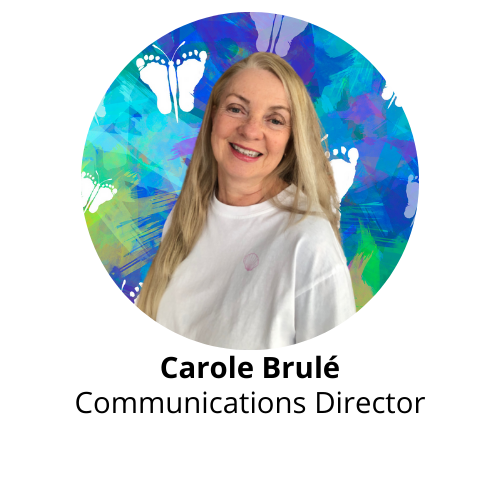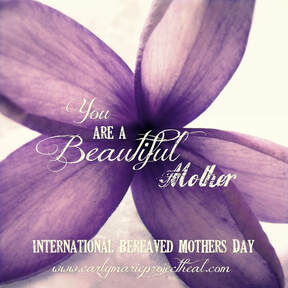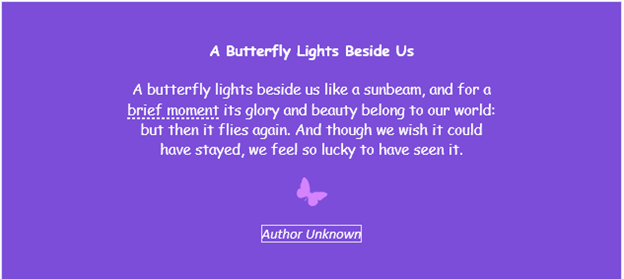|
The first Sunday in May (this year, May 1st, 2022) is International Bereaved Mother’s Day. This sacred day was created in 2010 and honours mothers who hold some, or even all their babies and children in their hearts rather than in their arms. How Did International Bereaved Mother’s Day Start? International Bereaved Mother’s Day was started in 2010 by Carly Marie Dudley who gave birth to a stillborn son, Christian. Carly wanted to help other grieving mothers by letting them know that they were not alone. She dedicated International Bereaved Mother’s Day to women who felt forgotten and isolated in their grief on Mother’s Day (traditionally held on the second Sunday of May each year). Still Standing, a publication founded in 2012, shares stories of loss from around the world and is a voice for grieving parents to share and support each other. This excerpt from their website eloquently describes how difficult traditional Mother’s Day celebrations can be for those who have experienced the pain of infertility, a loss during pregnancy or the loss of an infant: “The traditional Mother’s Day has proven to be an emotionally exhausting day for so many mothers around the world. Just because your child died does not mean that you are not a mother anymore. You are your child’s mother forever, and people need to start recognizing this fact. On Bereaved Mother’s Day each year, we come together to celebrate our connection, our babies and children, and our hope for the future. It is a day for us to take some time out and look at their ultrasound photos, polish their urns, lay flowers at their graves, visit unique places, and light candles in their memory.” Click here for the link. “It is our day to be recognized as the beautiful mothers that we are” Mother’s Day – a day that has traditionally been seen as a time to celebrate mothers, grandmothers, mentors, and mother figures – the women who have helped so nurture and shape us into who we are today. Mother’s Day and Father’s Day can also provide the opportunity to recognize the diversity and beauty of all family structures. For many, however, these traditions can be a source of grief and pain. For those struggling with infertility, loss during pregnancy or the loss of an infant, for widowed parents and those who have lost a parent, the approach of Mother’s Day is often a source of anticipatory grief and sorrow. I recently read a passage on the website “Option B” that reminded us to be mindful of those who may find occasions such as Mother’s Day incredibly difficult. “We would probably get a few strange looks if we wished everyone “Happy graduation” regardless of whether or not they are completing school. But as the second Sunday in May rolls around, we can fall into the trap of wishing every woman we meet a “Happy Mother’s Day” without a second thought. Our hearts are in the right place, but we may be unintentionally insulting or hurtful. Mother’s Day is a wonderful time to celebrate and share gratitude with the women who have helped us become who we are—while also being compassionate to those who find it difficult.” Click here for the link. Indeed, when I reflect on years gone by, I can honestly say that I have been greeted by well-meaning colleagues and acquaintances with ‘Happy Mother’s Day if you are a mother!” Well-meaning? Probably. Appropriate? Definitely not. What about the mom who is grieving her baby born still or the those who long to be parents but cannot conceive or have endured numerous miscarriages or a life-limiting fetal diagnosis? Such comments are a source of incredible pain. There is also the lead up to Mother’s Day that is filled with commercials advertising gifts and flowers for mom, celebrating with family brunches – all painful triggers for a bereaved parent. How can we support those who may not be looking forward to but instead, dreading occasions such as Mother’s Day? I returned to the “Option B” article mentioned above which has, what I feel, is some sound advice: “To understand how best to support a loved one who may not be looking forward to Mother’s Day, we talked to eleven experts in the areas of loss, infertility, and family dynamics. They agreed that these three steps can help you be thoughtful about how you address people on Mother’s Day:
I learn from them - Every. Single. Day. Here’s a bit of what I’ve learned. Bereaved parents unconditionally love and will think about their child gone-too-soon always and forever. They want to say and hear their child’s name and celebrate their child’s life no matter how short it might have been. Keeping their child’s memory alive and honouring their life matters so very much. To all bereaved moms, we see you, we hear you, we honour and support you and please remember, you are never alone.
0 Comments
Your comment will be posted after it is approved.
Leave a Reply. |
Archives
April 2023
Categories
All
|









 RSS Feed
RSS Feed